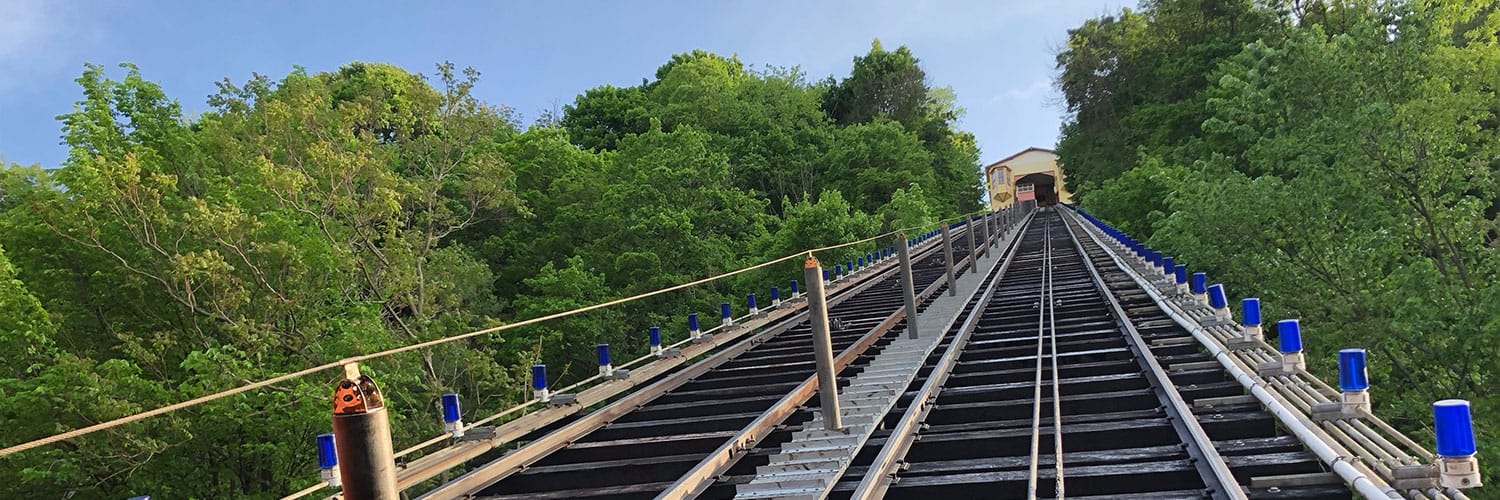
Pittsburgh’s public transportation system is operated by PAT, the Port Authority of Allegheny County. The transit network, which consists of light rail, city buses and a funicular (or incline) is largely accessible. Utilize the information in this section of the guide to learn about the accessible public transportation and prepare yourself to take advantage of the system when you arrive in the Steel City.
Wheelchair Accessible Pittsburgh Light Rail
The Pittsburgh T consists of four lines which together serve 53 stations. The system measures just of 26 miles in length, and is especially useful to tourists in Downtown Pittsburgh. While all of the light rail train cars are wheelchair accessible, only 27 of the stations are (full list provided below).
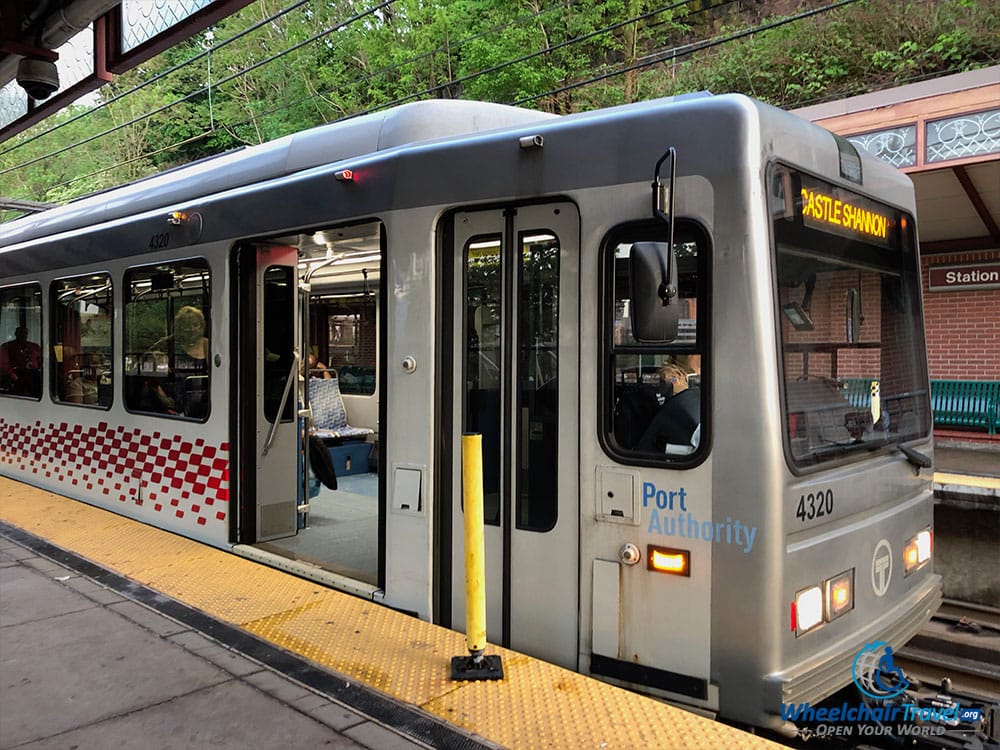
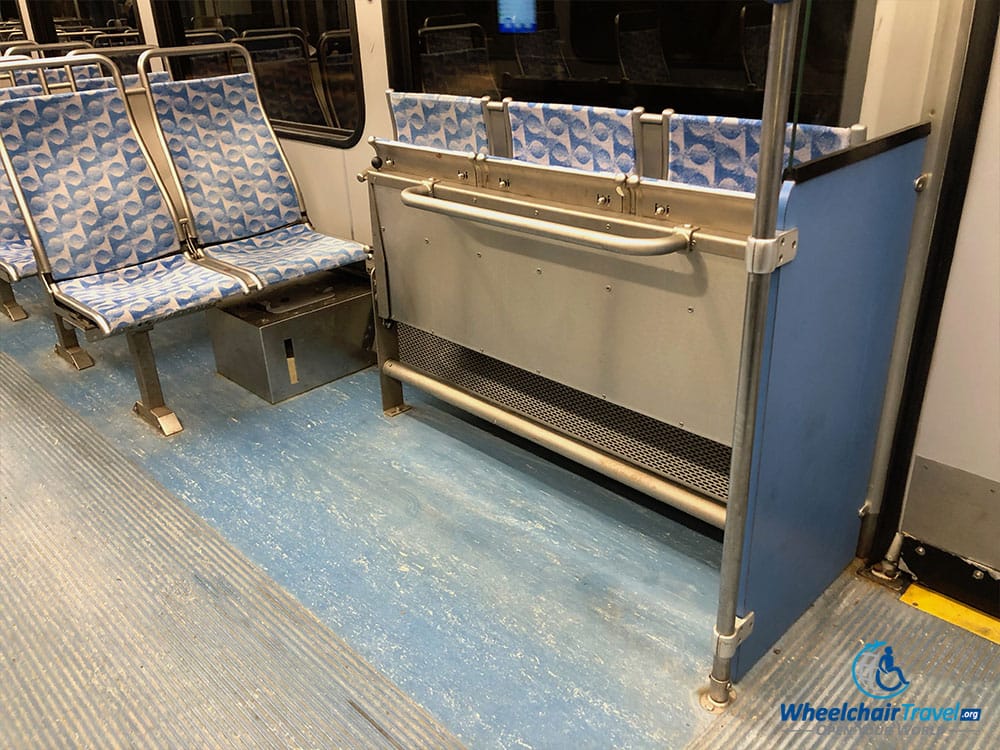
Each train offers level-entry boarding from accessible stations, with a gap of about an inch between the train and platform. Wheelchair spaces at the front of each car are exposed by folding the seats out of the way. The train operator will assist you with this task.
List of wheelchair accessible Pittsburgh light rail stations
The following light rail stations, arranged by line and in alphabetical order, are wheelchair accessible, with elevators or ramps from the street to station platform:
- Blue Line (Library via Overbrook) — Allegheny, Boggs, Bon Air, Denise, First Avenue, Gateway, Killarney, Library, Lytle, McNeilly, Memorial Hall, North Side, South Bank, South Hills Junction, Station Square, Steel Plaza, Washington Junction, West Library, Willow, Wood Street
- Blue Line (South Hills Village via Overbrook) — Allegheny, Boggs, Bon Air, Denise, First Avenue, Gateway, Killarney, McNeilly, Memorial Hall, North Side, South Bank, South Hills Junction, Station Square, Steel Plaza, Washington Junction, Willow, Wood Street
- Red Line (Castle Shannon via Beechview) — Allegheny, Castle Shannon, Dormont Junction, Fallowfield, First Avenue, Gateway, MT. Lebanon, North Side, Overbrook Junction, Potomac, South Hills Junction, Station Square, Steel Plaza, Wood Street
- Red Line (South Hills Village via Beechview) — Allegheny, Castle Shannon, Dormont Junction, Fallowfield, First Avenue, Gateway, MT. Lebanon, North Side, Overbrook Junction, Potomac, South Hills Junction, South Hills Village, Station Square, Steel Plaza, Washington Junction, Wood Street
Transfers between all four lines are possible at the following accessible stations: Allegheny, First Avenue, Gateway, North Side, South Hills Junction, Station Square, Steel Plaza and Wood Street.
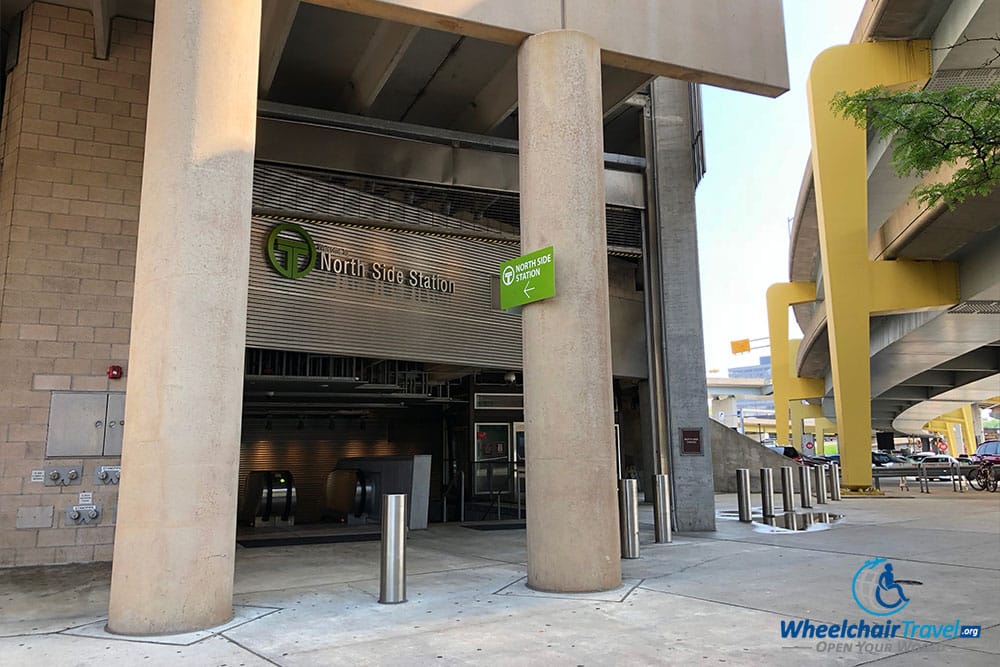
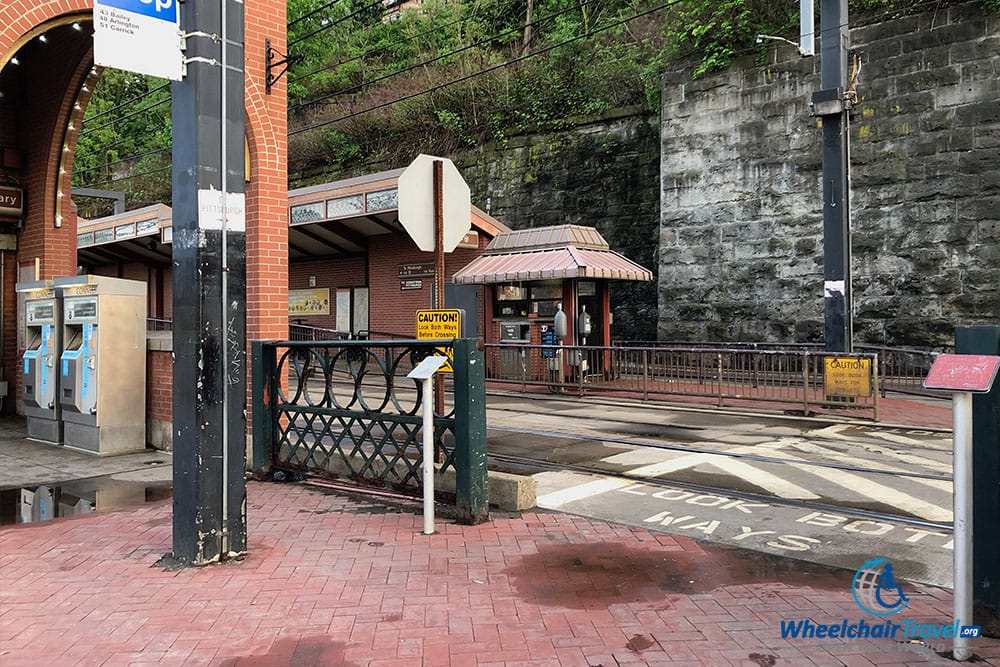
Light rail stations in Downtown Pittsburgh are located underground, with elevators, escalators and stairs to the station platform. Some stations outside the city enter, like Station Square (pictured above), have ramps to the outdoor platform.
Pittsburgh light rail fares and payment
Tickets are available at each accessible station via automated kiosks. Single ride trips can be purchased with cash or credit/debit cards for $2.75. Fares paid with the city’s reloadable ConnectCard are just $2.50. Transfers are only possible with a ConnectCard and cost $1 extra.
Unlike other metro or subway systems, there are no fare gates at Pittsburgh’s T stations. Riders are expected to tap their ticket or ConnectCard on the orange pad on the farebox. At some stations, there are staff members who check to make sure every rider has paid the requisite fare.
No fares are required for light rail trips entirely within the city’s downtown Free Fare Zone. The free fare zone consists of six stations: Allegheny, First Avenue, Gateway, North Side, Steel Plaza and Wood Street. For more information on riding the wheelchair accessible Pittsburgh light rail, visit www.portauthority.org.
Wheelchair Accessible Pittsburgh City Bus
The PAT operates more than 800 city buses on routes throughout the City of Pittsburgh and Allegheny County. The bus fleet is wheelchair accessible, with low floors and wheelchair ramps or lifts.
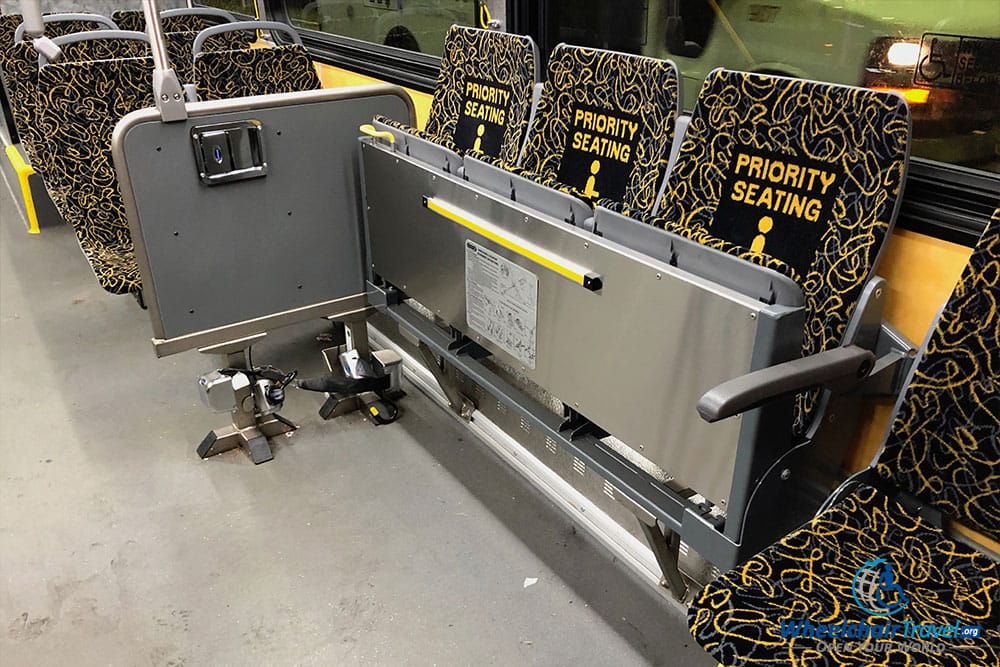
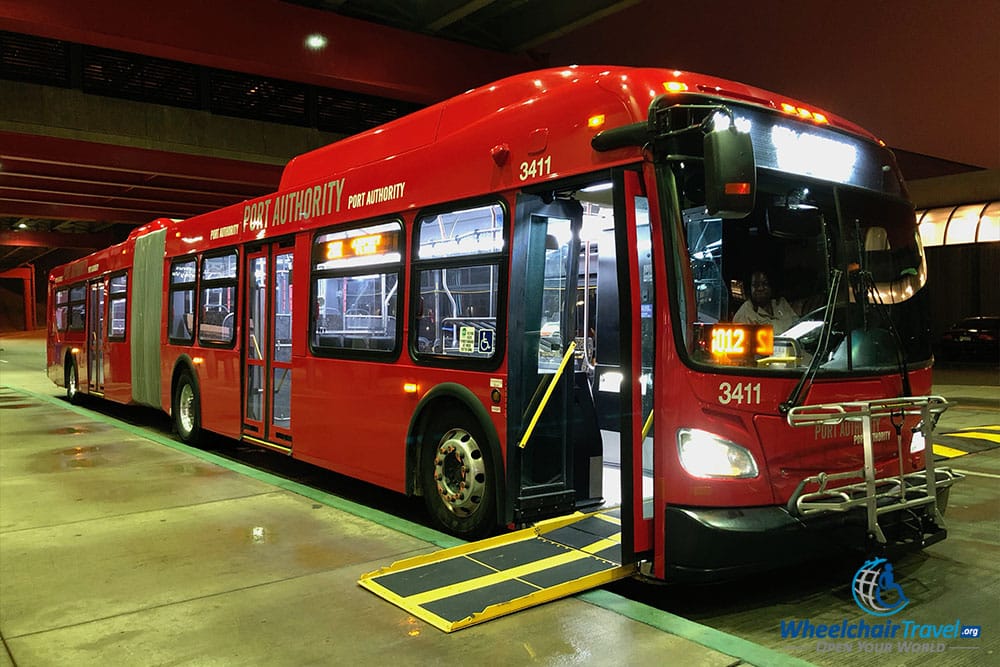
All city buses in Pittsburgh have a wheelchair accessible ramp or lift that extends from the front door. Seating reserved for seniors and people with disabilities can be folded out of the way to accommodate wheelchairs. Two wheelchair spaces are provided on each bus, and securement straps are used to hold wheelchairs and scooters in place.
Pittsburgh City Bus fares and payment
City bus fares are $2.75 if paying with cash, or $2.50 if paid using a reloadable ConnectCard. Exact change is required and discounts are only available upon presentation of a valid ID. If using the ConnectCard, transfers to another city bus or to one of the light rail lines are just $1.00.
Wheelchair Accessible Monongahela Incline (Funicular)
Opened in 1870, the Monongahela Incline is the oldest continuously operating funicular in the United States. For nearly 150 years, the incline has transported people and goods between Station Square and the top of Mt. Washington. A tourist attraction in its own right, the Mon Incline carries more than one million riders each year.
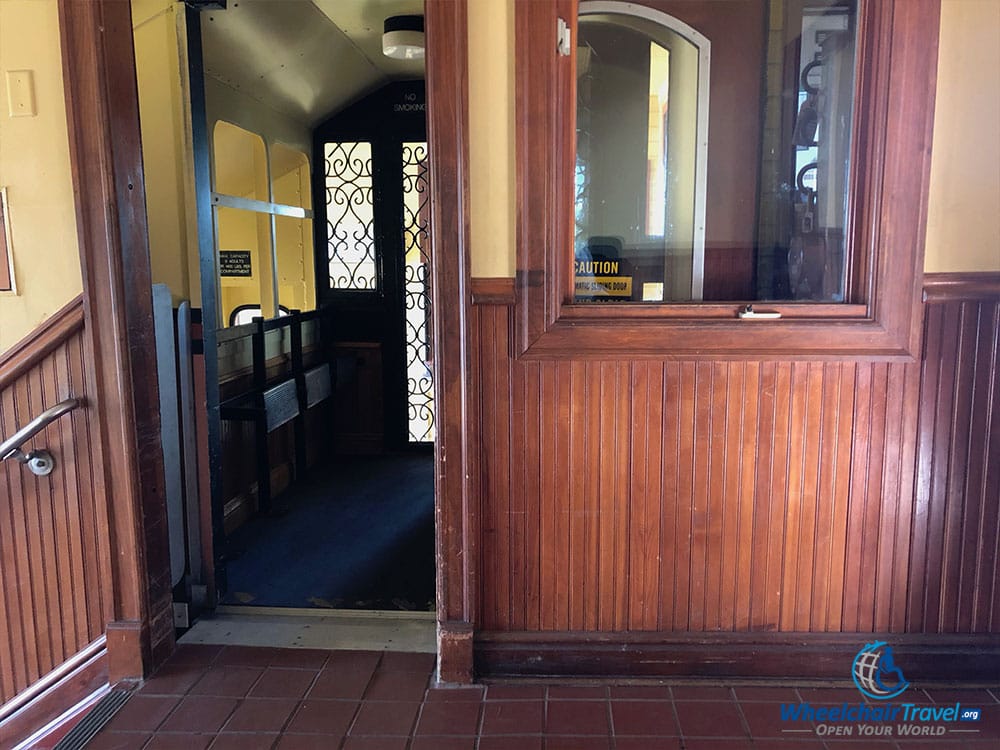
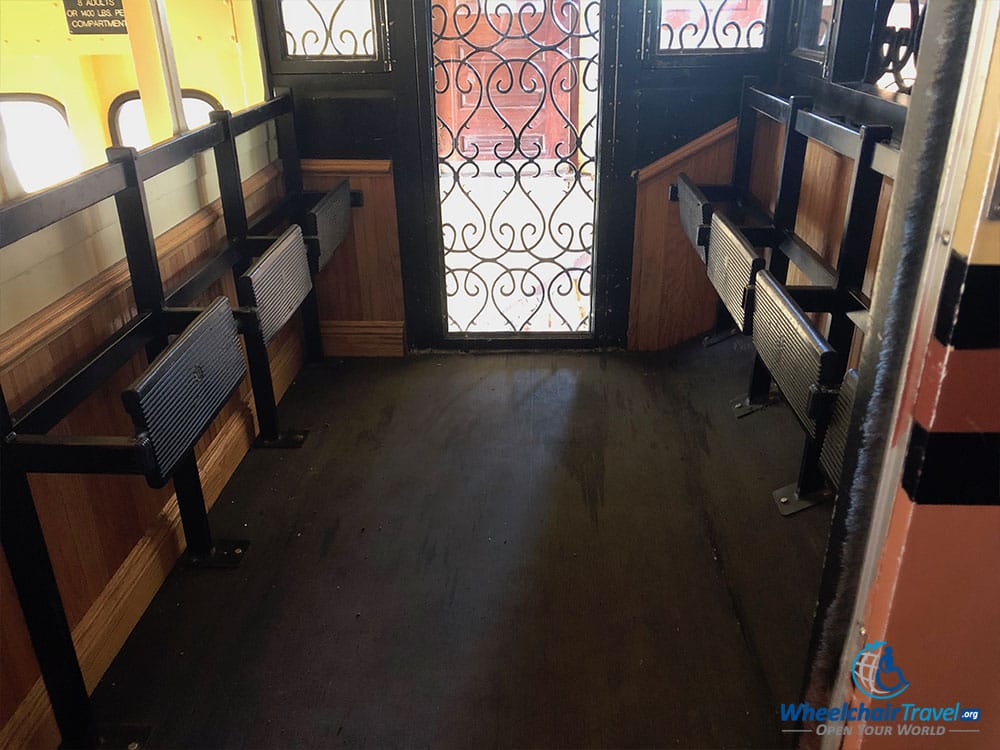
Wheelchair accessible at both the upper and lower stations, I tested out the incline for myself. At the lower station, wheelchair users enter the station and ride an elevator to the boarding platform, which provides level-entry access to the carriage. The fit is tight (pictured above), but there were no issues rolling my power wheelchair into the car.
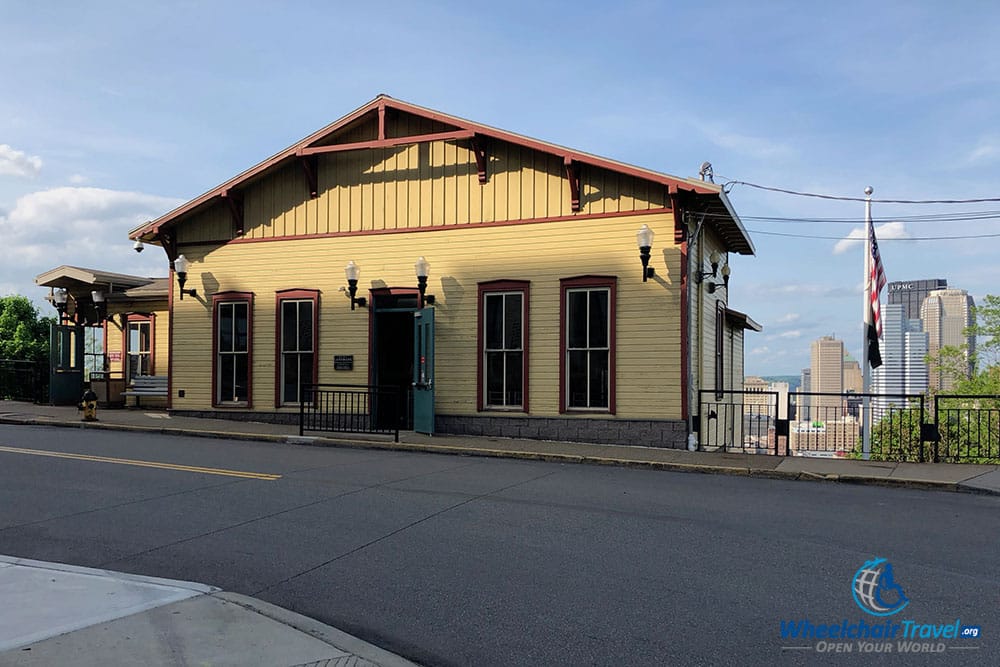
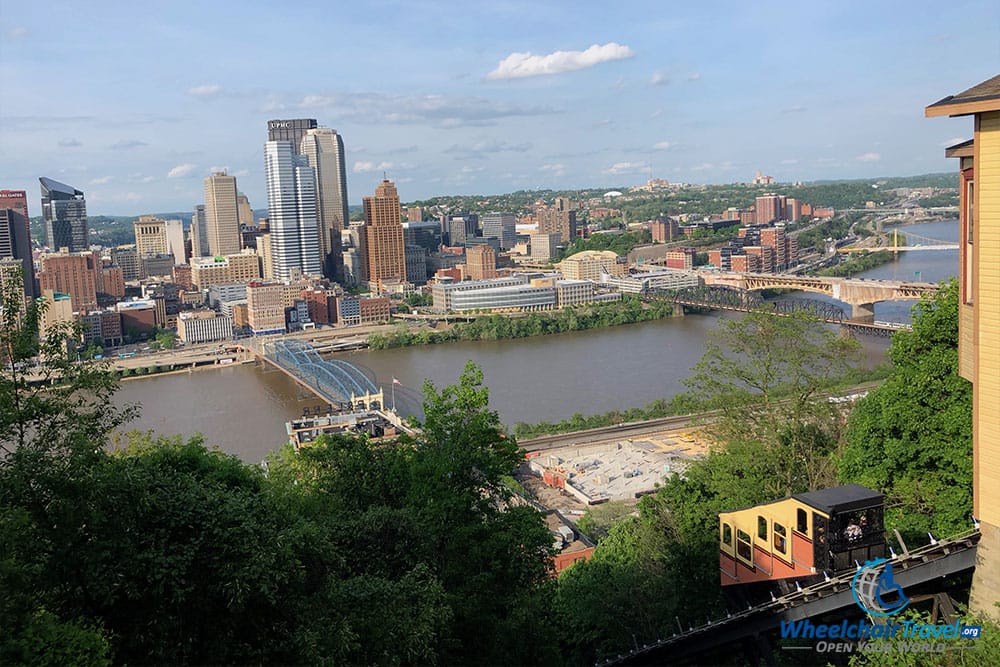
The cost of riding the Monongahela Incline is the same as all other modes of transit — $2.75 for a single ride fare, or $2.50 if paying with the ConnectCard. The incline is also included in daily or weekly unlimited ride passes.
Riders will get to enjoy an incredible view of the city from the top of Mt. Washington, and I strongly encourage you to take a round-trip ride on the funicular! The nearby Duquesne Incline also goes to the top of Mt. Washington, but it is only wheelchair accessible at the upper station. While wheelchair users can ride it, they won’t be able to get off or board at the lower station, requiring a round-trip ride.



